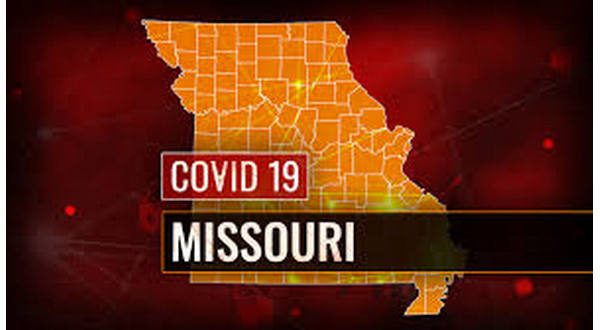
COLUMBIA, Mo. (AP) – The Missouri Legislature resumed work Tuesday after a special session had been delayed because several lawmakers tested positive for the coronavirus.Senators were scheduled to begin work mid-November. But the Senate leader pushed off session after he announced several senators and staffers caught the virus that causes COVID-19. Lawmakers have declined to say who tested positive.
The Senate budget committee on Tuesday gave initial approval to a $1.2 billion coronavirus aid package mostly comprised of federal funding. The move would allow the state to keep the federal money, including about $752 million in general coronavirus relief funding that needs to be spent by the end of the year. In Missouri, the Legislature must give approval for the governor to spend federal funding.
Senators raised concerns with Republican Gov. Mike Parson’s request to spend more federal funding despite not yet using all the coronavirus aid the state received earlier this year. For example, Parson’s administration expects counties to leave as much as $300 million on the table that will go back to the federal government if unspent by the end of the year.
“We haven’t spent all of the money that was allocated, that was appropriated by this body earlier in the year,” said Republican Sen. Lincoln Hough, who noted that roughly $775 million in previously budgeted federal coronavirus funding hasn’t been spent yet.
Several senators criticized Parson’s plan to put counties’ unspent federal funding into the state unemployment insurance fund so the money doesn’t go back to the federal government. Hough said the money needs to be spent more urgently to help struggling businesses.
State Budget Director Dan Haug told senators Tuesday that the governor’s administration is trying to get the money out the door quickly and that the unemployment insurance fund is a backup if counties can’t spend it all by the end of the year.
“We would like to be able to spend these dollars in Missouri to help Missourians, and so we are doing our best to tabulate what’s coming in on a very short time frame,” Haug said.
Senators on Tuesday also were slated to begin debate on a bill that would prevent some lawsuits against health care workers during the coronavirus pandemic.
The Republican-backed proposal would shield health care workers from being sued for negligence or knowingly disregarding the safety of others. They still could be sued if they intentionally cause serious injury to patients. Health care workers also would be immune to administrative sanctions during a state of emergency in Missouri.
The bill similarly seeks to protect manufacturers and other businesses that provide masks and other supplies for the pandemic. Businesses could only be sued if they intentionally make defective products.
Missouri’s Chamber of Commerce and Industries, an influential group in state politics, pushed for legal protections for businesses trying to help during the pandemic. Parson has said he supports shielding doctors and nurses amid the emergency.
Democratic House Minority Leader Crystal Quade has said the broad protections will also shield bad actors from being held responsible, “will encourage reckless behavior and make a crisis that already has spun out of control far worse.”
Cases of the coronavirus in Missouri continue to surge. The state health department on Tuesday reported at least 19,716 new cases in the past week, or 2,817 a day on average. Another 60 new deaths were reported in the past week.
Parson has repeatedly refused to enact a statewide face mask mandate, despite pressure to do so from some local officials.
A group of 18 St. Louis aldermen signed a letter asking Parson to require masks statewide, the St. Louis Post-Dispatch reported Tuesday. The St. Louis County Council last week to make a similar request to Parson.
Some state lawmakers want to limit local control. Republican Sen. Andrew Koenig said he plans to file a bill to put a two-week limit on local government-mandated business closures, the newspaper reported
WebReadyTM Powered by WireReady® NSI










